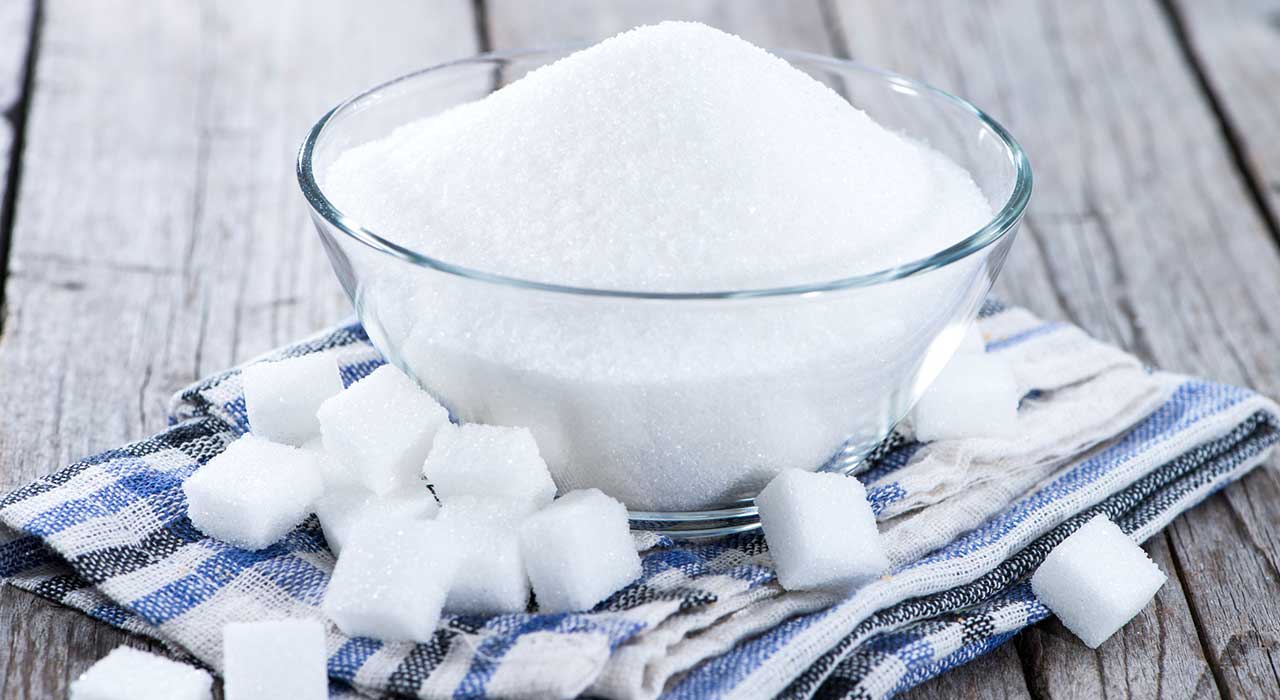Nutrition
Are You Addicted To Sugar?
Sparkling and white, crumbly and brown, in a cupcake, a chocolate bar or even a spoonful of honey, it doesn’t really matter, sugar in all its forms and colors gives your taste buds a thrill. In fact, that thrill consists of such a powerful physiological response that scientists have concluded sugar addiction can be as difficult to kick as a serious drug habit.
So perhaps it’s not a surprise to find out that, on average, Americans ingest the equivalent of 22 teaspoons of added sugar per day, which is nearly half a cup and amounts to around 300 calories.
Health risks
“Sugar consumption has risen enormously throughout the developed world, and with it rates of diabetes, heart disease, and cancer,” explains Londonbased nutritionist Farah Cleret.
Our bodies do need some form of sugar to create energy, however. glucose is what gives you the get-up and- go to sweat it out for an hour at the gym. The problem lies with what’s termed ‘free sugar’ or ‘added sugar.’
This is the sugar added to foods and drinks, as well as the sugars in honey, fruit juices and syrups. There is also sugar in whole fruit (fructose) and milk (lactose), but those aren’t the kind of sugar that pose a huge risk because it’s very difficult to eat too much of it because when you eat it, you’re also getting a lot of fiber, liquid and – in the case of milk products – protein.
So added sugar is the main health issue. And the problem with it is that because our bodies are primed to want sugar, we ingest more than we need. What’s more, no one really knows exactly how much sugar we need to function optimally each day – the World Health Organisation recommends just 5% of our daily calories come from added sugar, which amounts to around 30g per day, but the amount you need depends on your metabolism, weight, how much exercise you do and so on.
So if you think you need to cut back on sweet foods, you probably do. Take an honest look at what you eat each day and how it makes you feel. If you regularly treat yourself to biscuits, cake or chocolate bars, you’re most likely getting too much. And if you suffer with energy slumps during the day it could be as a result of too much sugar, because it causes energy levels to rise and then fall dramatically.
Sleep deprivation
Sugar consumption also interferes with sleep. A study, published in the journal American Academy of Sleep Medicine, found people who ate less fiber, more saturated fat and more sugar were more likely to have light sleep, with more disruptions and feeling less rested afterwards.
“The day-to-day effects of sugar consumption can have a huge impact on a person’s life, leaving them with low energy, low libido, poor memory and anxiety,” says Cleret. If you suspect you have a sugar addiction, try giving it up for just a day. If you find it incredibly difficult or impossible, it could be that you’re addicted to sugar. Researchers now believe that sugar addiction can be as powerful as drug addiction, defined as being a destructive compulsion to a specific behavior.
So if you find yourself munching a biscuit or cake when you promised yourself you wouldn’t, you might have progressed from an occasionally eating sweet things as a boost, to a sweet-eating habit, to a compulsion or addiction. That likely means you eat sweet things even when you’re already full.
As researchers from the Massachusetts Institute of Technology found when they studied mice addicted to sucrose, the little critters still showed addictive behaviors even after they’d been well fed, which led to weight gain.
But even if your metabolism or exercise regime means you simply don’t get fat, there’s still good reason to give up the sweet stuff, assuming you care about how you look, that is – because sugar can also make you age quicker. Sugars in your body latch on to proteins and can take a new form, called AGEs (advanced glycation end products). These are damaging to your skin’s inner protein structure, affecting the collagen and elastin that help keep it firm.
What about sweeteners?
According to a study in the British Journal of Dermatology, this process of damage to your skin’s proteins starts when you hit 35 and continues and the more sugar you eat, the more AGEs you get. What’s more, this process also changes the type of collagen your skin has, making it less resilient and more fragile overall.
So there’s no doubt that too much sugar does harm, but what about sweeteners? They seem like a dieter’s dream come true. Unfortunately the truth is that sweeteners don’t necessarily work that well.
“Artificial sweeteners have been indicated in diabetes, metabolic syndrome, heart disease and pregnancy complications,” says Cleret. “And although they are often used for weight loss, there is also new research which shows they may have the opposite effect and actually encourage weight gain.”
The research on whether they help with weight gain is conflicting, with some studies finding modest positive results (an average of 2lb weight loss), and others finding that people who regularly eat or drink diet foods with artificial sweeteners are more likely to gain weight, rather than lose it.
It seems odd that science can’t prove whether artificial sweeteners work or not, but it’s difficult for researchers to show a cause and effect – it could simply be that people who seek out diet foods are more likely to put on weight because they struggle with weight gain anyway. But there are also other factors at play.
For example some research, from the Weizmann Institute of Science, Israel, indicates the negative effect could be down to gut bacteria and how sweeteners interact with them.
Another possibility is: it could be because the brain doesn’t respond to sweeteners as it does to sugar. Research from the University of California, San Diego, revealed when people drank water sweetened with sucralose or sugar, MRI scans of their brains showed that their responses were not the same, indicating that the sugar high you get from a chocolate bar is different if it’s made with artificial sweetener.
In fact, what the researchers observed was that while the artificial sweetener activated the reward system in the brain, it didn’t satisfy it (unlike when sugar was eaten). That could mean your body then feels a need for more sugar rather than less.
So, the only guaranteed way to prevent the negative side effects of eating too much sugar is – to eat less sugar. To begin with, plan your treats.
Knowing if you’re addicted
Start by figuring out how much sugar you’re eating each day, calculate a cut in quantity that you can handle to start with and then make a plan of when you’ll eat your sweet treats. Maybe you’ll allow yourself a Friday afternoon brownie, or a Sunday morning pancake with syrup – whatever it is, plan it and remind yourself of what’s to come when you’re struggling.
Now, eat more, not less. Don’t cut out sugar completely without replacing it with another food. Check your diet is varied enough – sugar cravings can be the result of you not eating enough other foods.
If you’re a carb-lover, for example, it could simply be that your body is using up those easy-burn calories, leaving you feeling tired and needing an energy boost. So make sure to up your protein intake.
A magnesium deficiency is also linked with sugar cravings, so also make sure you include dark, leafy greens, avocados and nuts in your diet.
You’ll also need to cut out the sweet main meals. Breakfast is the most common culprit here – toast with jam, cereals with sugar or honey and so on. Your meals should not be sweet; save it for treats only.
If you can’t bear the thought of going savory for breakfast, eat fruit instead. Bananas are incredibly sweet with fructose, as are blueberries and dates, and you’ll find that if you add certain flavorings to porridge, like vanilla and cinnamon, let’s say, it’ll taste sweeter with less sugar too.
And if that craving hits you anyway? Give yourself five minutes before you give in and exercise like crazy. This might sound ridiculous but aerobic exercise – nonstop jumping jacks, legging it up and down the stairs, or a sprint around the block, for example – will release endorphins, helping provide your body with that pleasure kick it’s so desperately seeking. It’s the classic ‘runner’s high’.
Once you hit that high, all those thoughts of sweet moist cupcakes with whipped creamy frosting will completely disappear – although beware, you may develop an addiction to exercise instead!
Find health advice and more in every issue of TRAIN for HER.






















